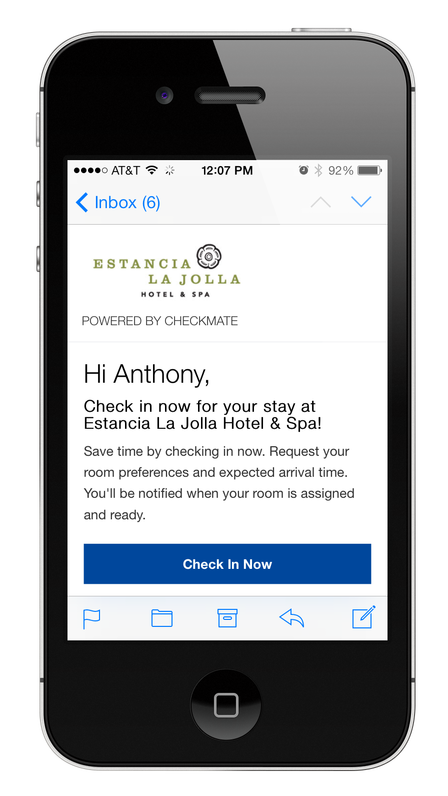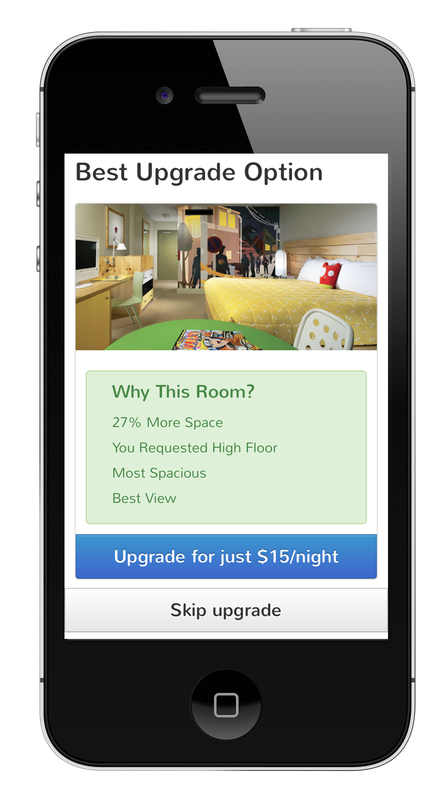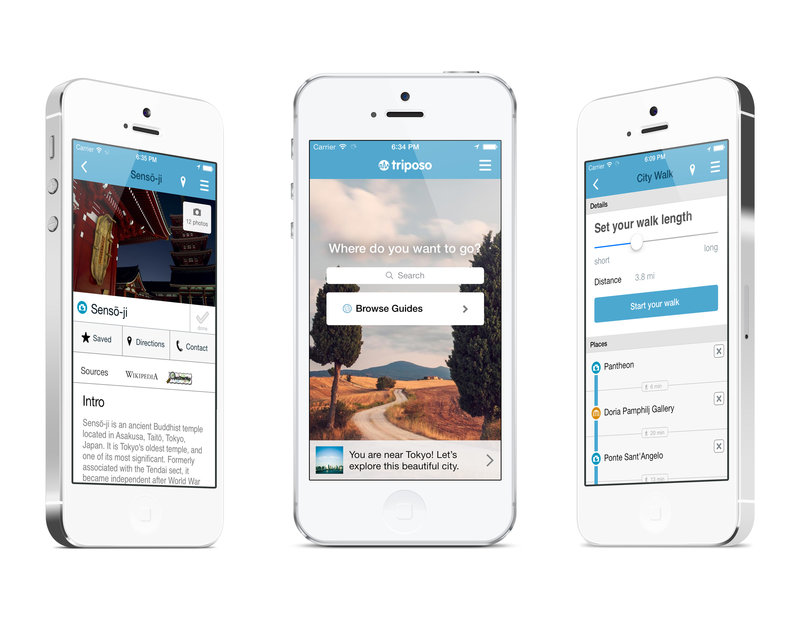Personalisation and planning: how mobile is changing the game
Delivering a truly personalised mobile experience is the holy grail of the travel industry today. Pamela Whitby talks to recent movers
At a recent overnight special offer stay at a Hilton Doubletree, check in and check out was smooth, the staff well trained and polite. The room was spotless, the bed and pillows comfortable, there was free WiFi, a Mac computer in the room and a complimentary bag of freshly baked chocolate cookies. Yet I had to wonder if they could have done something more to get me to dig deeper into my pockets - at the very least to sign up to the firm’s loyalty programme or download the Hilton app at the point of opening the confirmation email.
After all, as EyeforTravel’s recent research highlights, ancillary products present an opportunity to derive new revenues, and this is particularly true given the growing number of people using the mobile channel today. Like many customers, I opened Hilton’s confirmation email on my iPhone, and yet in this case it was not optimised for mobile, nor was I prompted to download the company’s app.
Then last week EyeforTravel.com ran a webinar on delivering a great mobile customer experience. One of the speakers was NH Hotels’ Director of e-Commerce and Product, Eloy Mariaud, who will be speaking at EyeforTravel @Mobile World Conference. His company has developed and is continuing to develop a range of different mobile solutions – such as mobile check in and a concierge type service - to improve the customer experience before, during and after their stay. When it comes to mobile, Mariaud’s advises developing in house solutions for core business – such as reservations and loyalty programmes. However, for non-core business such as more specific concierge type services he would recommend using a white label solution.
One such solution is CheckMate, a division of hotel meta-search company Room 77, which recently launched its beta version of a mobile guest check-in experience. According to the company’s co-founder Anthony Maggio, the firm’s white-labeled technology allows hotels and distributors to provide more mobile and online services to guests, which delivers a new level of personalisation. Hotels already using the technology say they are benefiting and in particular from the opportunity to upsell.

According to Mike Blake CIO at Commune Hotels, they have seen improved financial performance at properties after implementing this mobile check-in product. “Guests are overwhelmingly in favour of mobile communications and the new check-in experience as well,” he says.
How it works: Essentially, the day before arrival the guest receives a hotel branded email that works across all platforms in which guests are offered the option to check in. Guests can select their room preference, communicate their arrival times, enter loyalty numbers and agree to receive room status alerts.
For Aaron Anavim, Director of Front Office Operations, Estancia La Jolla, “using CheckMate has had a positive impact on the guest pre-arrival experience in that it provides guests with a realistic timeframe when their room will be ready, allowing guests to better plan their day”.
If the guest is not a loyal member, there is also an opportunity for a hotel to use this as an opportunity to share information about how they could benefit. Most importantly from a revenue generation perspective - guests are given the option to upgrade – something that the Hilton Doubletree did not offer me at the check in desk. And had I been offered an £30 upgrade at this point, it is something I almost certainly would have jumped at.

What Checkmate also does for hotels is pull in all publicly available data (such as name and email address) about a potential guest to build a more detailed profile. “If you know what the customer looks like – and he has already checked in and you know what time he is arriving, you could present him with his keys as he walks through the door,” says Maggio.
For some guests this may be a step too far – and could be treading the line of being creepy - but you get the idea of how personalised you can make the experience.
More room for improvement
On another tack, an area where there is also room to improve the guest experience is in the field of trip planning. Triposo, a mobile app founded by ex-Googlers and which won EyeforTravel’s Best Mobile App award at this year’s Travel Distribution Summit, Europe, which has been downloaded five million times is one firm that is trying to do just that. According to co-founder Richard Osinga, Triposo receives 400,000 unique visitors each month and travellers spend on average 25 minutes engaged with the app. Recently the company, launched an upgrade and according to Osinga, each time a user opens the app, it will make personalised, location-based suggestions to travellers while they are on the move.

The company has been analysing the click behaviour of millions of sessions of travellers and has found that personalised algorithms can actually predict click behavior up to 10% better than non-personalised algorithms.
If the customer doesn't like the suggestion, explains Osinga, there is an automatic pull-to-refresh mechanism that automatically brings up new suggestions, and custom badges to categorise suggestions based on topics like ‘best for steak’ or ‘best for coffee’. These suggestions are drawn from at least two trusted sources including TripAdvisor, Facebook, Foursquare and Instagram.
While Triposo clearly has some very neat features and is doing some interesting things – such as offering city walks that also take in a neighbourhood’s best pubs, for example – there is plenty of competition in the trip-planning field. TripAdvisor, for one, has the advantage of scale and has developed a native app in house, which includes a number of useful in-destination features. According to Richard Kenny, TripAdvisor’s Director of Mobile Partnerships and affiliate EMEA, 94% of customers use TripAdvisor’s app to find something local to do, 75% are looking for restaurants and 80% are looking at maps.
And like Triposo, TripAdvisor’s app is also available and interactive while offline, which eliminates the potential for high roaming charges. Even if data roaming charges fall further for European, this continues to be an issue for travellers to Europe from elsewhere. And as Kenny points out, this is going to be an issue for another year at least.
One thing is clear: mobile is now a top priority for brands and there is everything to play for. Mariaud has this word of advice: when developing mobile solutions choose your technology partner carefully.
For more insights into how to make mobile work for your brand, join us at EyeforTravel@ Mobile World Conference (Feb 25-26)

